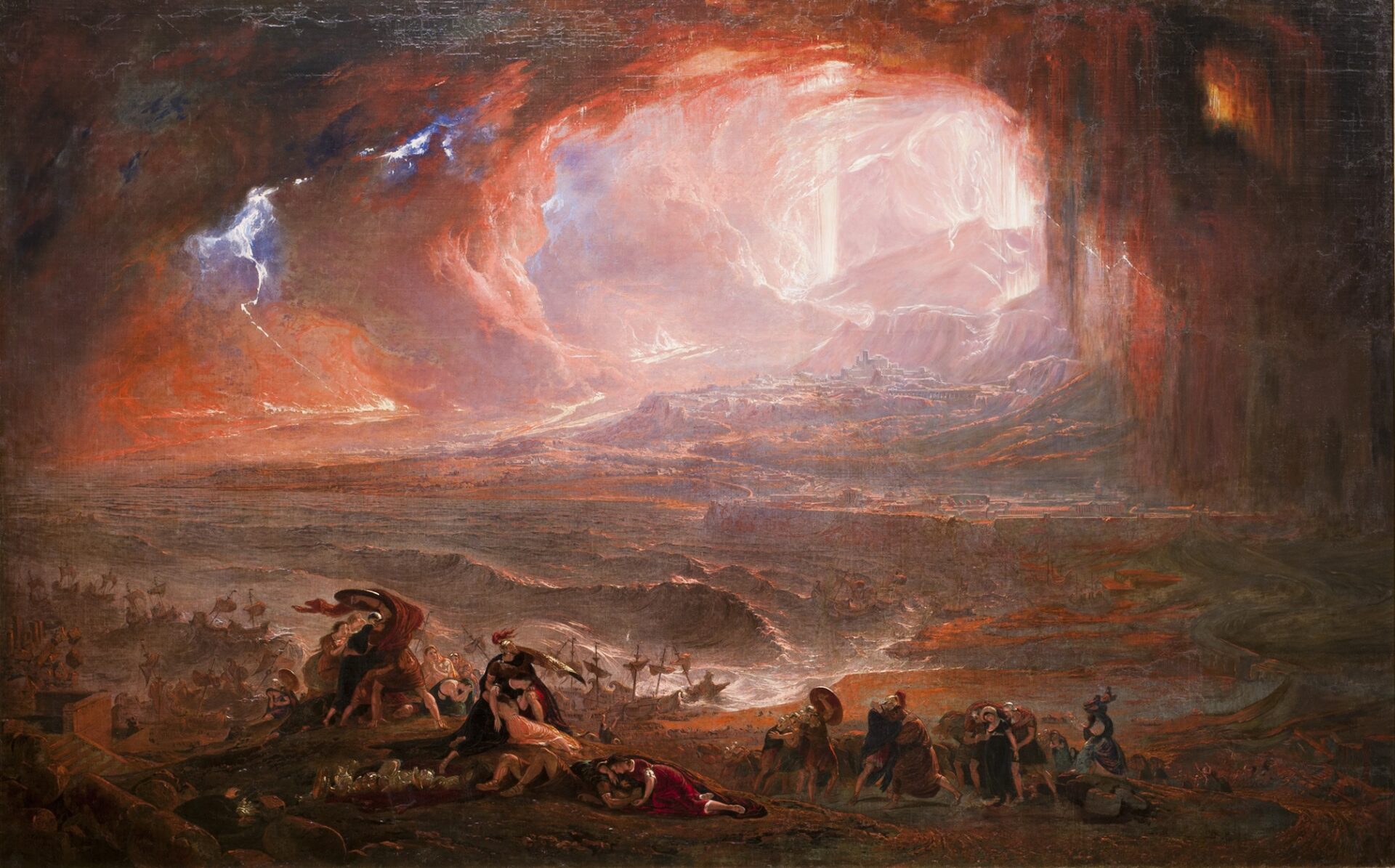Pliny the Elder (A.D.. 23-79) was a Roman naturalist who died of asphyxiation near Mount Vesuvius, having gone personally to investigate the eruption. In a letter to Tacitus, his nephew Pliny the Younger (A.D. c. 62—c. 113), described the eruption. His description humanized the death of an entire city, relating how the people of Pompeii fell in the streets where gas and molten lava overcame them. Pompeii disappeared under thirty feet of ash.
___________________________________________________
As he was coming out of the house he received a note from Rectina, the wife of Bassus, who was in the utmost alarm at the imminent danger (his villa stood just below us, and there was no way to escape but by sea); she earnestly entreated him to save her from such deadly peril. He … ordered large galleys to be launched, and went himself on board one, with the intention of assisting not only Rectina, but many others; for the villas stand extremely thick upon that beautiful coast….
And now cinders, which grew thicker and hotter the nearer he approached, fell into ships, then pumicestones too, with stones blackened, scorched, and cracked by the fire, then the sea ebbed suddenly from under them, while the shore was blocked up by landships from the mountains….
In the meanwhile Mount Vesuvius was blazing in several places with spreading and towering flames, whose refulgent brightness the darkness of the night set in high relief. But my uncle, in order to soothe apprehensions, kept saying that some fires had been left alight by the terrified country people, and what they saw were only deserted villas on fire in the abandoned district…
It was now day everywhere else, but there a deeper darkness prevailed than in the most obscure night; relieved, however, by many torches and divers illuminations. They thought proper to go down upon the shore to observe from close at hand if they could possibly put out to sea, but they found the waves still ran extremely high and contrary. There my uncle having thrown himself down upon a dis¬used sail, repeatedly called for, and drank, a draught of cold water; soon after, flames, and a strong smell of sulphur … dispersed the rest of the company in flight… He raised himself up with the assistance of two of his slaves, but instantly fell… When day dawned again … his body was found entire and uninjured, and still fully clothed as in life; its posture was that of a sleeping, rather than a dead man.

